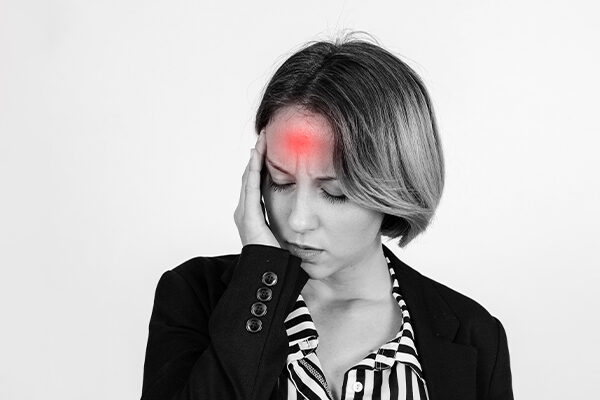Last Updated on July 6, 2023
Introduction
Bipolar disorder, previously called manic-depressive illness or manic depression, is a mental disorder that causes unusual fluctuations in a person’s mood, concentration, energy and activity levels. This in return, makes it very difficult to perform day-to-day tasks. Bipolar disorder is further classified into 3 types, all of which involve evident changes in mood, energy and activity levels. Cognitive deficit is another significant issue in people with bipolar disorder and affects how a person with bipolar disorder thinks. As a result, the executive functioning is also hampered.
“Discover new possibilities in managing bipolar disorder. Explore cutting-edge treatments through our bipolar disorder clinical trials in Illinois, Chicago. Enroll today to help shape the future of bipolar disorder research and make a difference for yourself or someone you care about.”
Continue reading this article to learn more about bipolar disorder, its causes and symptoms, how a person with bipolar disorder thinks, and how often ADHD co-occurs with bipolar disorder.
Etiology of Bipolar Disorder
The exact cause of the bipolar disorder is not defined however, certain factors that play a role include:
Biological differences:
The brains of individuals with bipolar disorder typically undergo physical alterations, although the precise impact or causative role of these changes in bipolar disorder remains uncertain.
Genetics:
Genetic composition plays a major role in bipolar disorder. Like other conditions, it is common in people who have first-degree relatives.
How Does Bipolar Disorder Present?
The symptoms of bipolar disorder vary from manic episodes to depressive episodes and affect how a person with bipolar disorder thinks.
Symptoms of Manic Episode
- Experiencing heightened levels of euphoria and intense irritability
- Feeling jumpy or more energized than usual
- Insomnia
- Racing thoughts
- Wanting to do things all at once without feeling tired
- Feeling empowered, and confident
- Excessive appetite for food
Symptoms of Depressive Episode
- Feeling sad, and anxious
- Feeling restless
- Trouble falling asleep or sleeping too much
- Trouble concentrating
- Trouble remembering things
- Talking slowly
- Lack of interest
How a Person with Bipolar Disorder Thinks: Fact vs Fiction
Bipolar disorder is a complex mental health condition marked by significant mood fluctuations ranging from manic highs to depressive lows. It is critical to remember that everyone’s experience with bipolar disorder is different, and not everyone will have the same thought patterns or symptoms. However, below listed are certain points about how a person with bipolar disorder thinks, separating fact from fiction.
Fact #1
Mood swings:
Bipolar disorder is characterized by strong mood swings. Individuals experiencing manic episodes may have racing thoughts, greater energy, and enhanced creativity. On the other hand, during depressive episodes, people may have unpleasant thoughts, low energy, and a loss of interest in activities.
Fiction #1
Constant mood changes
: While bipolar disorder is characterized by significant mood swings, it is important to note that these mood episodes can last for days, weeks, or even months. It is incorrect to think that people with bipolar disorder alternate between mania and depression all the time.
Fact #2
Cognitive distortions:
People with bipolar disorder may develop cognitive distortions, which are non-realistic patterns of thinking. Black-and-white thinking, leaping to conclusions, and catastrophizing circumstances are examples of these distortions.
Fiction #2
Unpredictable behavior:
Although bipolar disease can produce considerable fluctuations in mood and behavior, this does not imply that people with the condition are fundamentally unpredictable or dangerous. Individuals with bipolar disorder can effectively control their symptoms and have stable lives with the right therapy and support.
Fact #3
Impulsivity:
Individuals with bipolar disorder may engage in impulsive behaviors such as excessive spending, unsafe sexual behavior, or substance misuse during manic episodes. These activities are frequently the result of poor judgment and a desire for instant fulfillment.
Fiction #3
Split personality:
Dissociative identity disorder (formerly known as multiple personality disorder) should not be confused with bipolar disorder. Bipolar disorder is distinguished by discrete phases of mania and sadness rather than by the presence of numerous unique personalities.
Fact #4
Emotional extremes:
Bipolar disorder patients frequently experience powerful emotional states. They may feel ecstatic, indestructible, or unduly irritable during manic episodes. They may feel unbearably unhappy, hopeless, or empty during depressive episodes.
Fiction #4
Lack of control:
While bipolar disease can have a substantial impact on an individual’s mood and behavior, it is important to note that people with the disorder can learn to manage their symptoms. Treatment alternatives such as medication, counseling, and lifestyle modifications can assist people in regaining control of their lives.
Remember that these are generalizations, and each person with bipolar disorder will have their own experiences and cognitive patterns. This affects how a person with bipolar disorder thinks because each person’s experience is unique, it is critical to treat mental health disorders with respect, understanding, and an open mind.
How Often Does ADHD Co-occur With Bipolar Disorder?
To answer the most frequently asked question, “how often does ADHD co-occur with bipolar disorder?” — Attention deficit hyperactivity disorder (ADHD) and bipolar disorder are reasonably common co-occurring disorders. Individuals with bipolar disorder are more likely than the general population to have ADHD, according to studies. The precise prevalence rates can vary based on the study and the population under consideration.
The connection between ADHD and bipolar disorder is complicated. Both diseases include mood and attention dysregulation, and they might share symptoms such as impulsivity and distractibility. It is crucial to emphasize, however, that having ADHD does not guarantee that a person would acquire bipolar disorder, and vice versa.
Individuals with co-occurring ADHD and bipolar disorder can be difficult to diagnose and treat since the presence of one ailment might affect the diagnosis and management of the other. Individuals who may have both disorders require a detailed evaluation by a mental health specialist to appropriately diagnose and design an effective treatment strategy.
A Word from Revive
The mental well-being of individuals is a significant priority at the Revive Research Institute. We have successfully carried out numerous clinical trials in psychiatry, targeting diverse mental health conditions such as Bipolar disorder, Borderline Personality Disorder, Major Depressive Disorder, Obsessive-Compulsive Disorder (OCD), Perimenopausal Depression, and Attention-Deficit/Hyperactivity Disorder (ADHD). Presently, our focus is on conducting clinical trials specifically aimed at Bipolar Disorder, with the goal of aiding those afflicted by this challenging condition.
Outlook
To sum it up, bipolar disorder is a debilitating condition that restricts a person from living their life peacefully. It severely affects how a person with bipolar disorder thinks and the severity of mood fluctuations makes it hard for them to keep up with the day-to-day tasks, hence lowering their productivity levels. Additionally, bipolar disorder is said to be linked with other mental health conditions and raises questions like how often does ADHD co-occur with bipolar disorder?
Therefore, it is important to keep an eye on the symptoms and reach out to a qualified mental health professional or a psychiatrist so that complications can be avoided.




